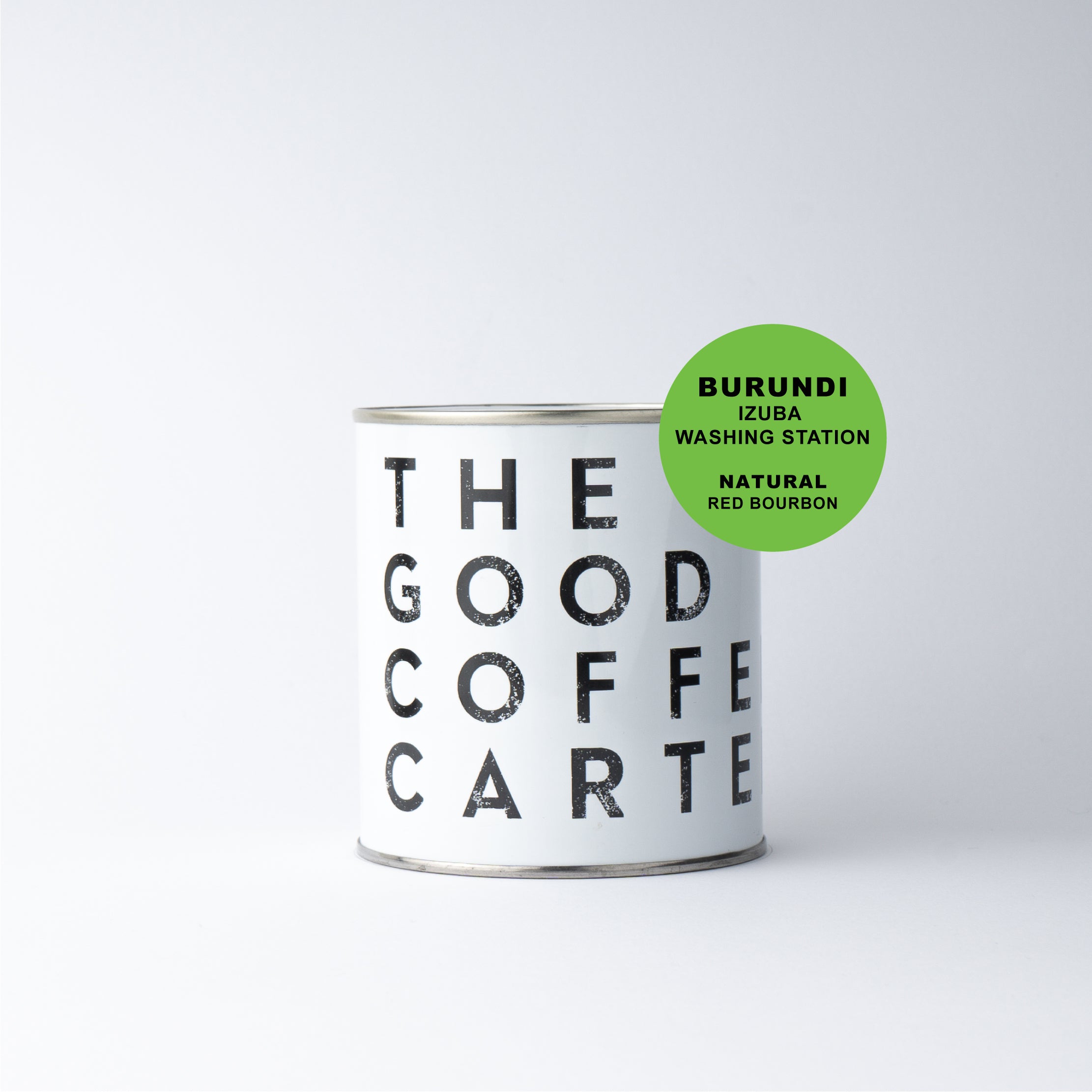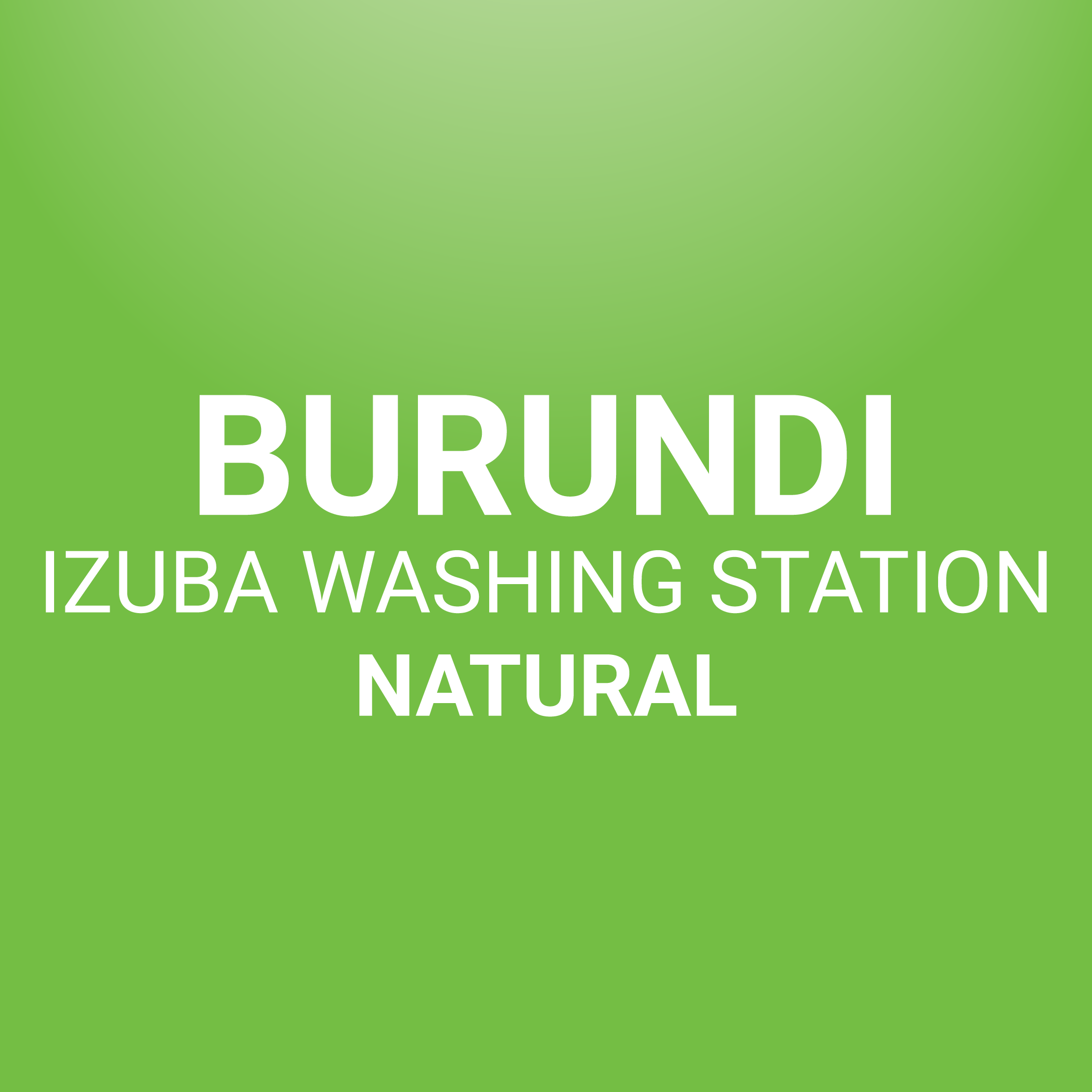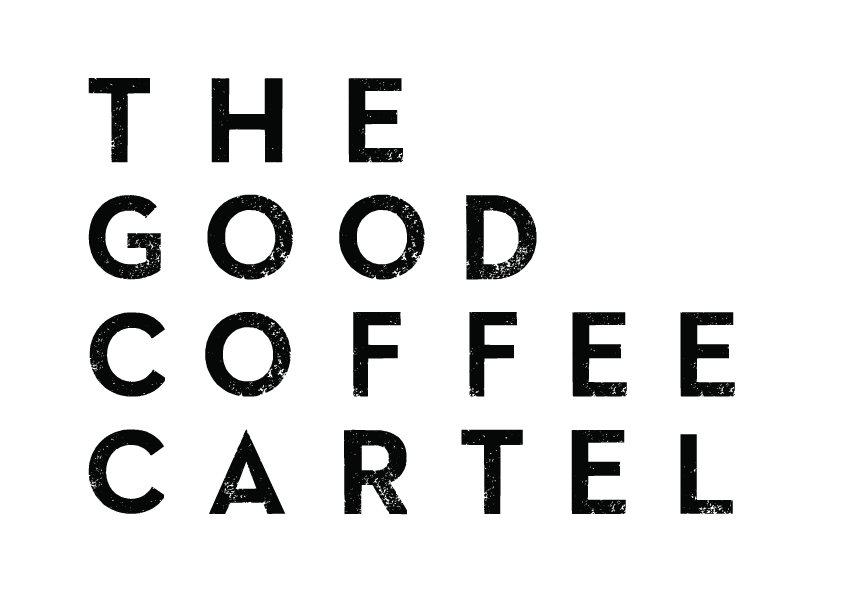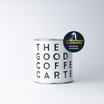


Burundi, Izuba Washing Station
The first coffee of our Spring/Summer 2025 collection! Translated from Kirundi, it’s literally the “Sun” washing station, and that pretty much tells you everything you need to know: the flavour notes are basically a taste of the better weather ahead (although being Glasgow-based we must remind you that this is not, and cannot ever be a guarantee!) To be honest even in the pouring rain this’ll be a banger. Tastes like lemon drops, elderflower and apricot.
Izuba means “sun” in Kirundi, and this coffee certainly shines! The Izuba washing station is in Runinya, Kayanza — close to a river and right near Kibira National Park, an ideal setting for growing beautiful coffee. It’s managed by Ntama Appolinaire with support from Prosper Merrimee of Raw Material, Burundi.
Raw Material bought coffee from 1482 producers (around 26% of which are female). The coffee is collected across three nearby hills: Kigeri, Ryamukona, and Mugoyi. Each volume of cherry sold is tracked by producer and hillside, helping capture subtle flavour differences from each area! Izuba washing station has a capacity of 800,000kg of coffee, in which Raw Materials processed 453,000kg.
The ethical practices are a big part of what makes Izuba special. Staff are paid 25% more than other local stations and 33% more than the national average. Producers are paid fairly and receive three government-set payments over the harvest — Izuba’s commitment to making these three payments on time is the key to a solid foundation for their producer relationships.
The station processes coffee in a variety of ways — washed, honey, anoxic, CO2 decaf — but this lot is a classic natural. After careful hand-sorting, cherries are floated to remove underripe beans.
Potato defect is tackled firstly through thorough floating of cherries, and then primarily by extensive wet sorting (this is the hand sorting that takes place under cover when the coffee has just been pulped and is still wet- the potato defect beans are most visible at this point). Two new wet sorting sheds were added in 2020, to improve this process even further! Now that the cherries have been sorted and cleaned, they are ready to be dried. They are laid out evenly across raised beds which provide them consistent airflow, as well as height to prevent moisture and animals coming into contact. They are turned constantly when the sun is at its peak during the day, and covered during the night. Once dried, the outer fruit is removed and the coffee is prepped for export.
Bonus: leftover coffee pulp is composted and turned into natural fertiliser for local farms!!

Lemon Drop, Elderflower, Apricot
Burundi
Runinya, Kayanza
Izuba Washing Station
Natural
Red Bourbon
1500 - 1700masl






